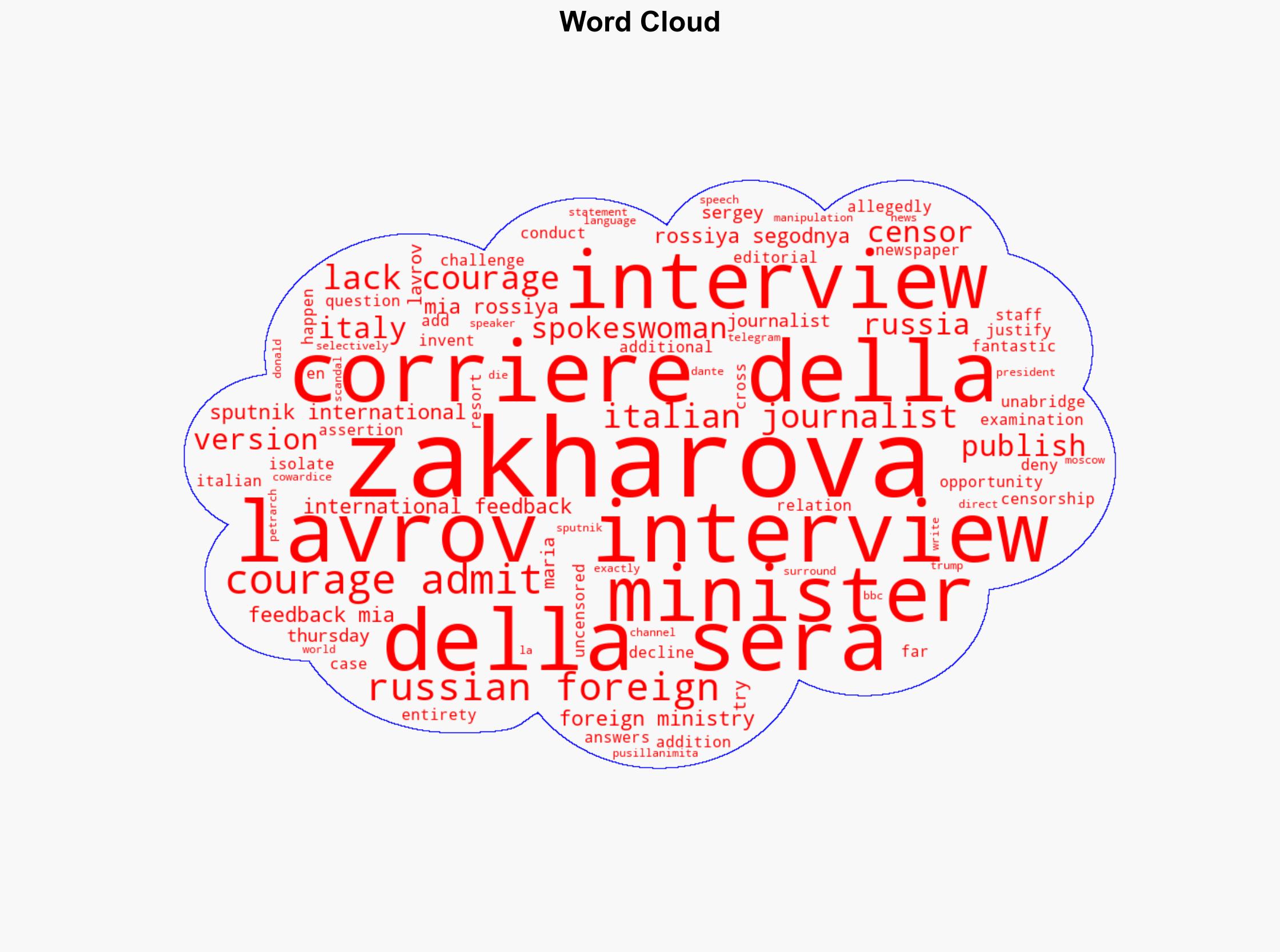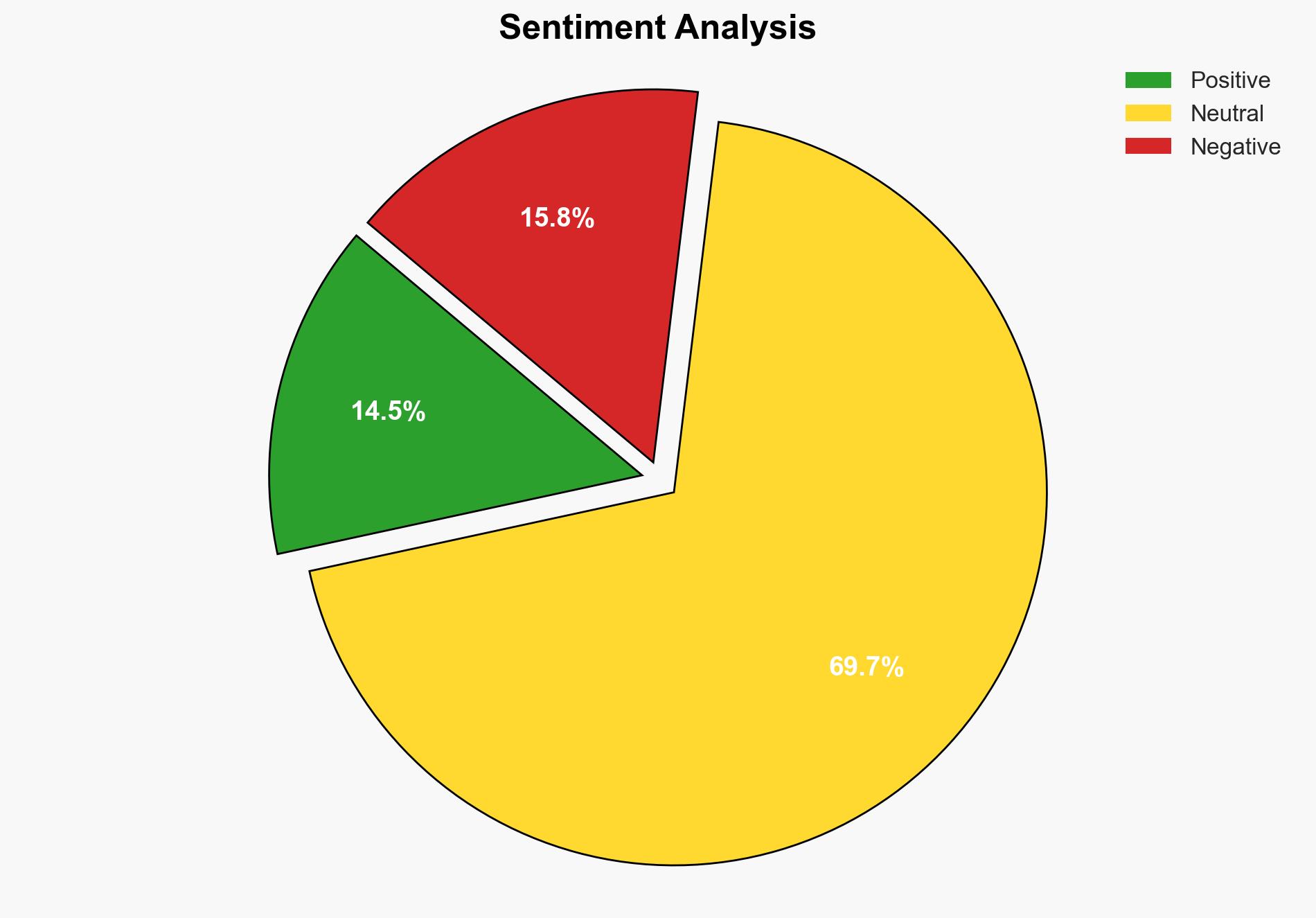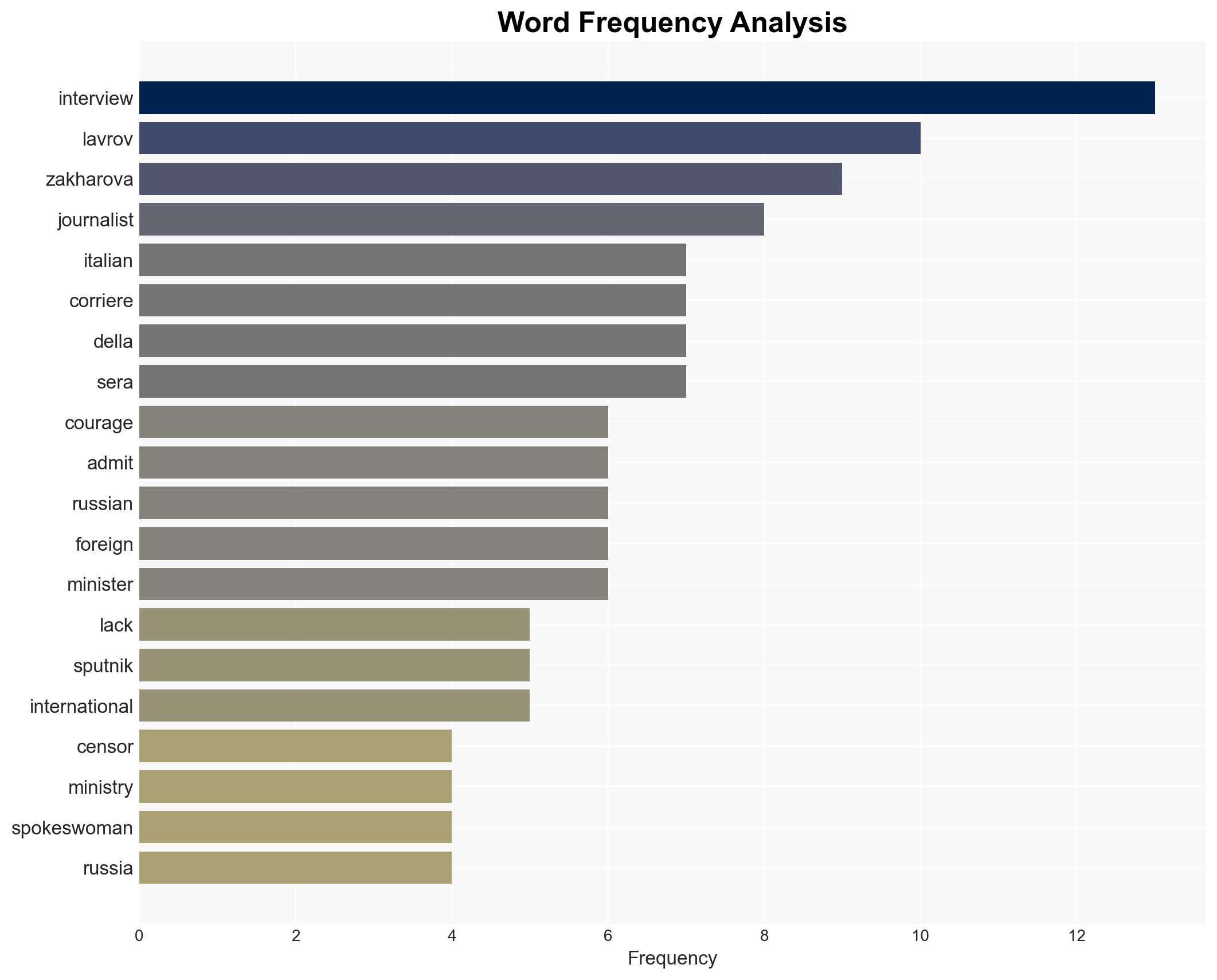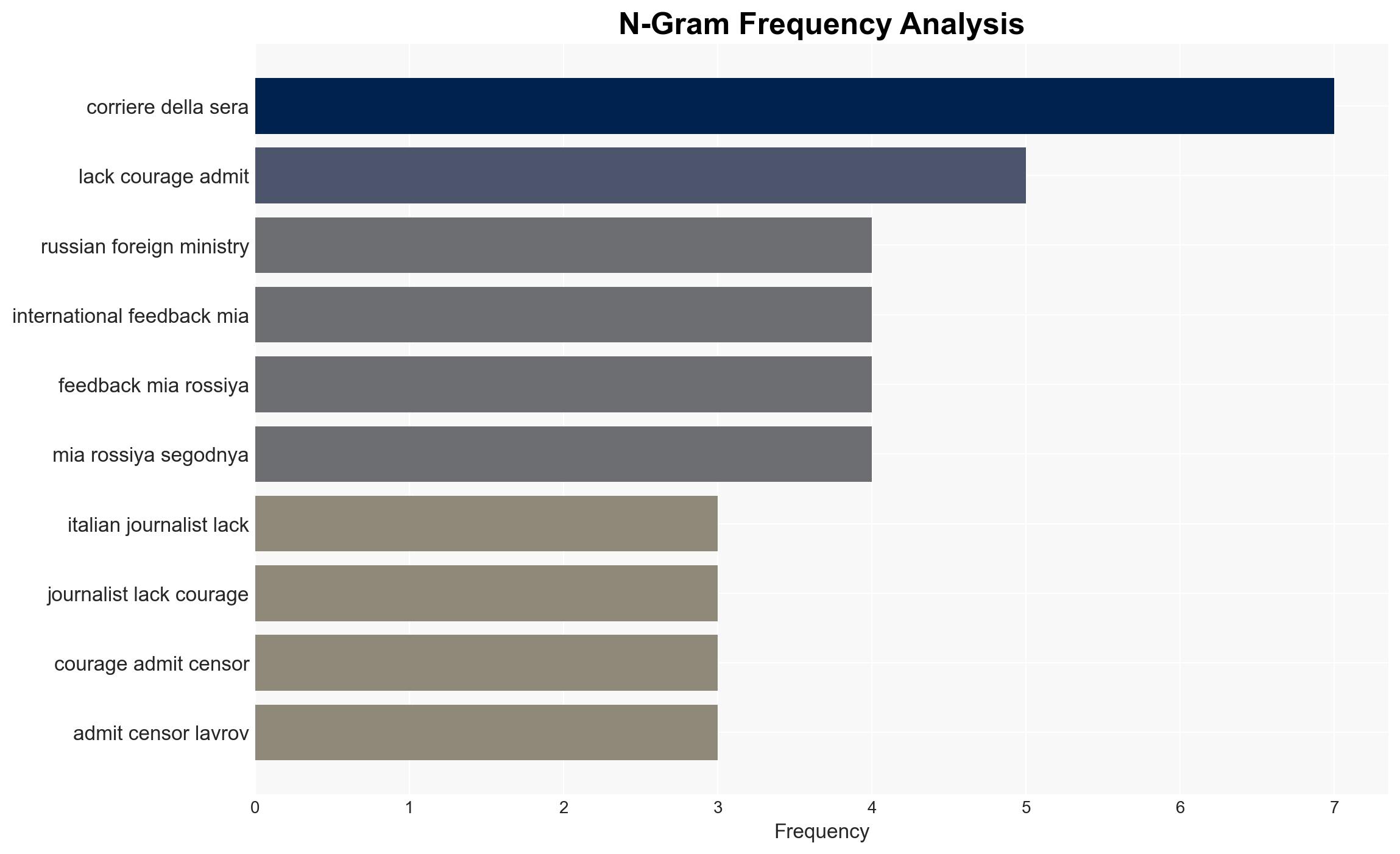Italian Journalists Lack Courage to Admit to Censoring Lavrov’s Interview – Zakharova – Sputnikglobe.com
Published on: 2025-11-14
AI-powered OSINT brief from verified open sources. Automated NLP signal extraction with human verification. See our Methodology and Why WorldWideWatchers.
Intelligence Report: Italian Journalists Lack Courage to Admit to Censoring Lavrov’s Interview – Zakharova – Sputnikglobe.com
1. BLUF (Bottom Line Up Front)
With a moderate confidence level, the most supported hypothesis is that the Russian Foreign Ministry, through Maria Zakharova, is using allegations of censorship by Italian media as a strategic narrative to undermine Western media credibility and to bolster Russian information influence. Recommended actions include monitoring further Russian narratives and preparing counter-narratives to maintain media integrity.
2. Competing Hypotheses
Hypothesis 1: The Russian Foreign Ministry is leveraging the censorship allegation to discredit Western media and promote its own narrative. This is supported by the consistent pattern of Russian media accusing Western outlets of bias and censorship.
Hypothesis 2: The Italian newspaper Corriere della Sera did engage in selective editing of Lavrov’s interview, reflecting a genuine attempt to manage potentially inflammatory content. This hypothesis is less supported due to the lack of independent verification and the source’s potential bias.
3. Key Assumptions and Red Flags
Key assumptions include the belief that the Russian Foreign Ministry has a vested interest in discrediting Western media. A red flag is the reliance on Sputnik, a state-controlled media outlet, which may have biases and an agenda to manipulate narratives. The lack of corroboration from independent sources raises the possibility of deception.
4. Implications and Strategic Risks
The primary risk is the erosion of trust in Western media, which could lead to increased polarization and susceptibility to misinformation. Politically, this narrative could strain Italy-Russia relations and complicate diplomatic engagements. In the informational domain, it may embolden other state actors to adopt similar strategies.
5. Recommendations and Outlook
- Monitor Russian media outlets for similar narratives and prepare counter-narratives that emphasize transparency and journalistic integrity.
- Engage with Italian media to verify the claims and encourage public disclosure of the interview’s full content if possible.
- Best-case scenario: The allegations are debunked, reinforcing the credibility of Western media.
- Worst-case scenario: The narrative gains traction, leading to widespread skepticism of Western journalism.
- Most-likely scenario: The issue remains a localized narrative with limited impact beyond immediate media circles.
6. Key Individuals and Entities
Maria Zakharova, Sergey Lavrov, Corriere della Sera.
7. Thematic Tags
Regional Focus: Europe, Russia
Structured Analytic Techniques Applied
- Causal Layered Analysis (CLA): Analyze events across surface happenings, systems, worldviews, and myths.
- Cross-Impact Simulation: Model ripple effects across neighboring states, conflicts, or economic dependencies.
- Scenario Generation: Explore divergent futures under varying assumptions to identify plausible paths.
Explore more:
Regional Focus Briefs ·
Daily Summary ·
Methodology





